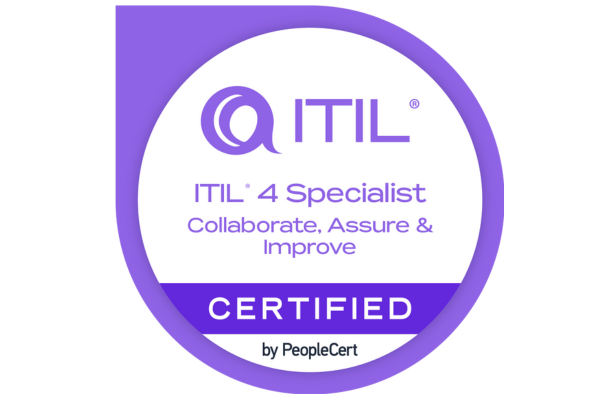ITIL® 4 Practitioner: Relationship Management
This module provides best practice guidance on how to establish and nurture the links between the organisation and its stakeholders at strategic and tactical levels. It includes the identification, analysis, monitoring, and continual improvement of relationships with and between stakeholders. This course will help professionals to:
-
Establish a common approach to relationships and relationship management that can be adopted and followed across the organisation
-
Ensure successful relationships within an organisation, as well as between an organisation and external parties including customers, users, partners and suppliers
-
Promote shared or mutually recognised goals, no-blame cooperation and collaboration, continuous learning, open communication, and conflict prevention and mediation
-
Identify and manage stakeholders and their interests
-
Measure, assess and develop the Relationship Management practice capability in their organisation by using the ITIL Maturity Model.
ITIL® 4 Practitioner: Supplier Management
This module focuses on how to ensure that the organisation’s suppliers and their performances are managed appropriately to support the seamless provision of quality products and services. This includes creating an optimised sourcing strategy, as well as closer, more collaborative relationships with key suppliers to uncover and realise new value and reduce the risk of failure. This course will help professionals to:
-
Ensure the effective use of third-party services by establishing a common approach to sourcing strategy and managing supplier relationships
-
Maintain a single point of control on active and planned supplier contracts and services
-
Define strategies for the use of suppliers’ and partners’ services, to evaluate and select suppliers, and to ensure that consumed services meet or exceed agreed service levels, the cost of the consumed services is optimal, and associated risks are understood and controlled
-
Improve customer satisfaction and loyalty
-
Measure, assess and develop the Supplier Management practice capability in their organisation by using the ITIL Maturity Model.
ITIL® 4 Practitioner: Service Level Management
This module provides best practice guidance on how to set clear, business-based targets for service utility, warranty, and experience, and to ensure that service delivery and use is properly assessed, monitored and managed against these targets. This part of the course will help professionals to;
-
Set and manage a shared view of the quality of services between the service provider and the service consumer, aimed at all key stakeholders on both sides
-
Monitor and evaluate the actual service quality and continual improvement of the services and agreements
-
Translate stakeholder expectations and needs into metrics, then organise and manage the resources appropriately
-
Manage ongoing delivery and improvement of services through a well-documented agreement such as the service level agreement (SLA)
-
Measure, assess and develop the Service Level Management practice capability in their organisation by using the ITIL Maturity Model.
ITIL® 4 Practitioner: Continual Improvement
The purpose of this practice is to align the organisation’s services with changing business needs through the ongoing improvement of products, services, practices or any element involved in the management of products and services. This part of the course will help professionals to;
-
Adapt to changing business needs and circumstances, and maintain and increase the value generated by their service value system (SVS)
-
Enhance product and service quality, reliability and responsiveness
-
Improve their overall capabilities to deliver and manage services efficiently
-
Develop an organisational culture of engagement, empowerment and innovation
-
Measure, assess and develop the Continual Improvement practice capability in their organisation by using the ITIL Maturity Model.
ITIL® 4 Practitioner: Information Security Management
This module provides best practice guidance on how to protect the information needed by the organisation to conduct its business. This includes understanding and managing risks to the confidentiality, integrity and availability of information, as well as other aspects of information security such as authentication and non-repudiation. The practice underpins the strategy and operations of all modern organisations, regardless of how many IT systems they use for conducting their business. This part of the course will help professionals to;
-
Ensure in conjunction with other ITIL Practices that an organisation’s products and services meet the required level of information security for all involved parties
-
Protect the technology and data assets crucial for the organisation’s operations including from loss of reputation and financial consequences
-
Protect the organisation, its employees and its customers from cyber crime
-
Provide a clear picture of information security threats and vulnerabilities
- Measure, assess and develop the Information Security Management practice capability in their organisation by using the ITIL Maturity Model.

